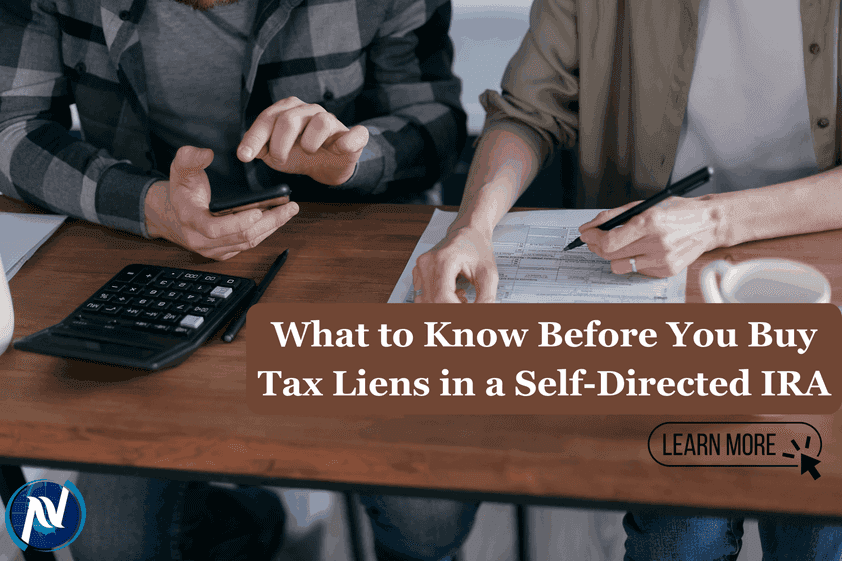What to Know Before You Buy Tax Liens in a Self-Directed IRA
It sounds like a niche play. Tax liens investing? Inside a Self-Directed IRA? But for experienced investors—and even some beginners—it’s an approach that can offer high potential returns, secured by real estate, without the need to buy entire properties. The catch? You’ve got to understand how it works. Because while tax lien investing can be …

It sounds like a niche play. Tax liens investing? Inside a Self-Directed IRA? But for experienced investors—and even some beginners—it’s an approach that can offer high potential returns, secured by real estate, without the need to buy entire properties. The catch? You’ve got to understand how it works. Because while tax lien investing can be powerful, it also comes with its own set of rules, especially inside a retirement account. So before you dive into tax lien certificates with your IRA, here’s what to know.
How Tax Liens Work in a Self-Directed IRA
Let’s start with the basics. When a property owner fails to pay their property taxes, the local government still needs that money to keep things running. So they offer what’s called a tax lien certificate—a kind of IOU. When you purchase that certificate, you’re paying the taxes on the owner’s behalf. In return, you’re entitled to repayment, plus interest, once the owner makes good on their debt.
That interest rate? It can be generous. Some states offer double-digit returns. And if the owner never repays? In some cases, you could even claim ownership of the property—though that’s not usually the goal for most investors.
Inside a Self-Directed IRA, the process works similarly. You use funds from your retirement account to buy the lien, and the returns go back into the IRA, not your personal account. You’re not touching the money directly, and you’re not fronting the funds yourself. It all has to stay within the IRA’s structure to maintain compliance.
What Makes Tax Liens Appealing—and What to Watch Out For
One of the big draws here is the security. Unlike unsecured loans or speculative assets, tax liens are tied to real property. That means if something goes wrong, you’ve got a built-in layer of protection. You’re not just betting on an idea—you’re tied to a physical parcel of land.
It’s also relatively low cost to get started. You’re not buying the whole property. In some cases, you can purchase a lien for just a few hundred dollars. That opens the door to a wider range of investors who want to try their hand at real estate-related assets without making a huge capital commitment.
But there are risks. You need to know the local rules. Each state runs its tax lien sales differently, and what’s allowed in one area may be restricted in another. Some liens take months or even years to resolve. And if the lien isn’t repaid? You might be forced into foreclosure proceedings just to get a return, something most IRA holders want to avoid.
Then there’s the paperwork. The IRS has rules about what you can and can’t do inside a Self-Directed IRA. You can’t buy a lien on your own house. You can’t personally collect the money or handle the deal outside of the IRA’s custody. You’ll need to work through a qualified custodian to stay in compliance and keep the account’s tax-advantaged status intact.
Smart Strategies for Tax Lien Success in an IRA
The key to success here is education and preparation. Tax liens can be lucrative, but they’re not hands-off. You’ll want to research which states offer the best opportunities, learn the timelines, and get comfortable with the legal ins and outs. Some investors even specialize in a single county or municipality where they understand the process well and can spot good deals quickly. Want to find out how tax lien investing could work in your Self-Directed IRA? Give American IRA a call today at 866-7500-IRA. We’re happy to walk you through it.
Get 15 minutes of free expert advice.
If you're not sure whether a self-directed IRA is right for you, schedule a 15-minute call with our industry veteran team. We'll explain the possibilities, help you evaluate your options, and answer all your questions - no pressure, no obligations.
